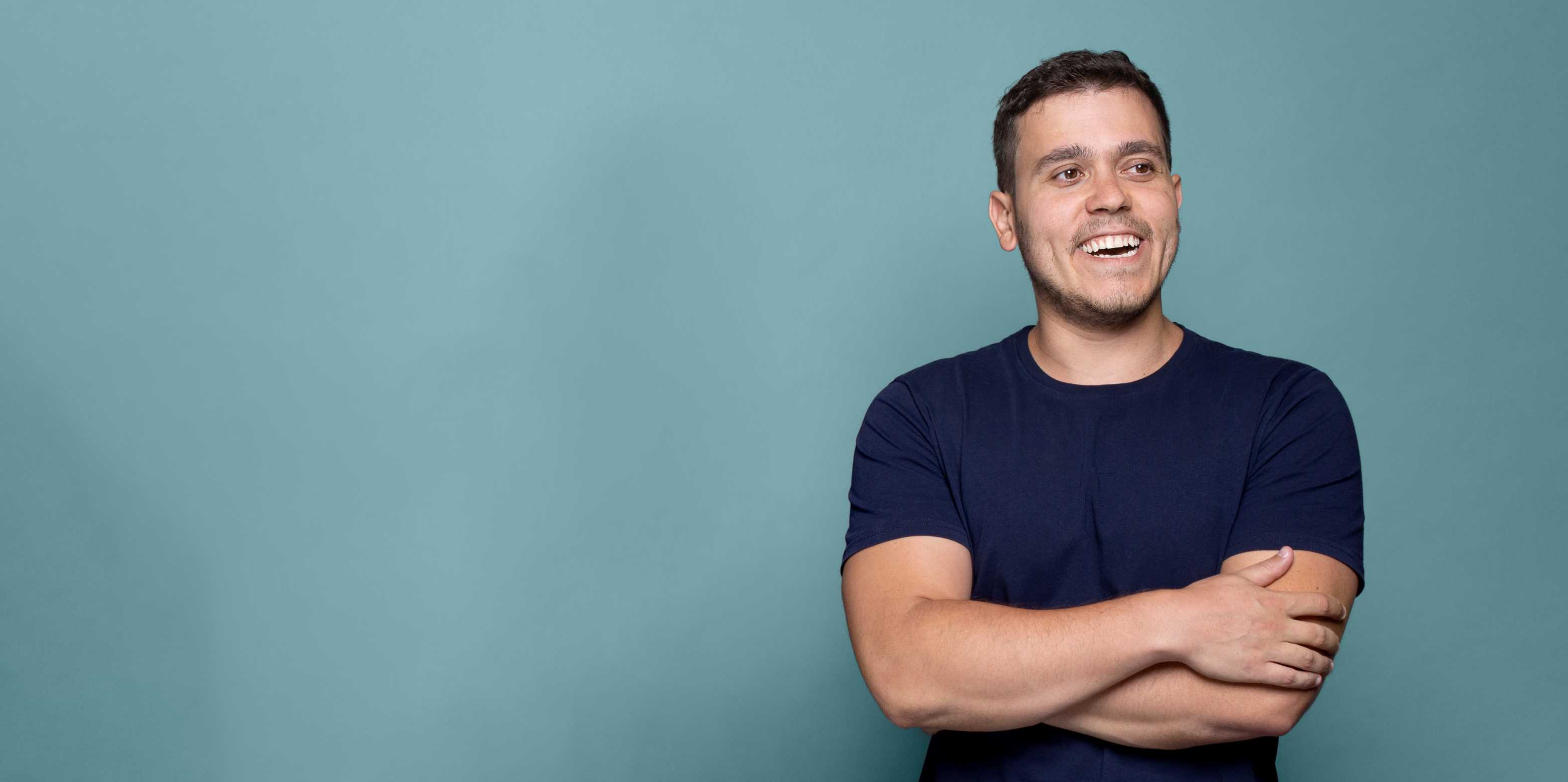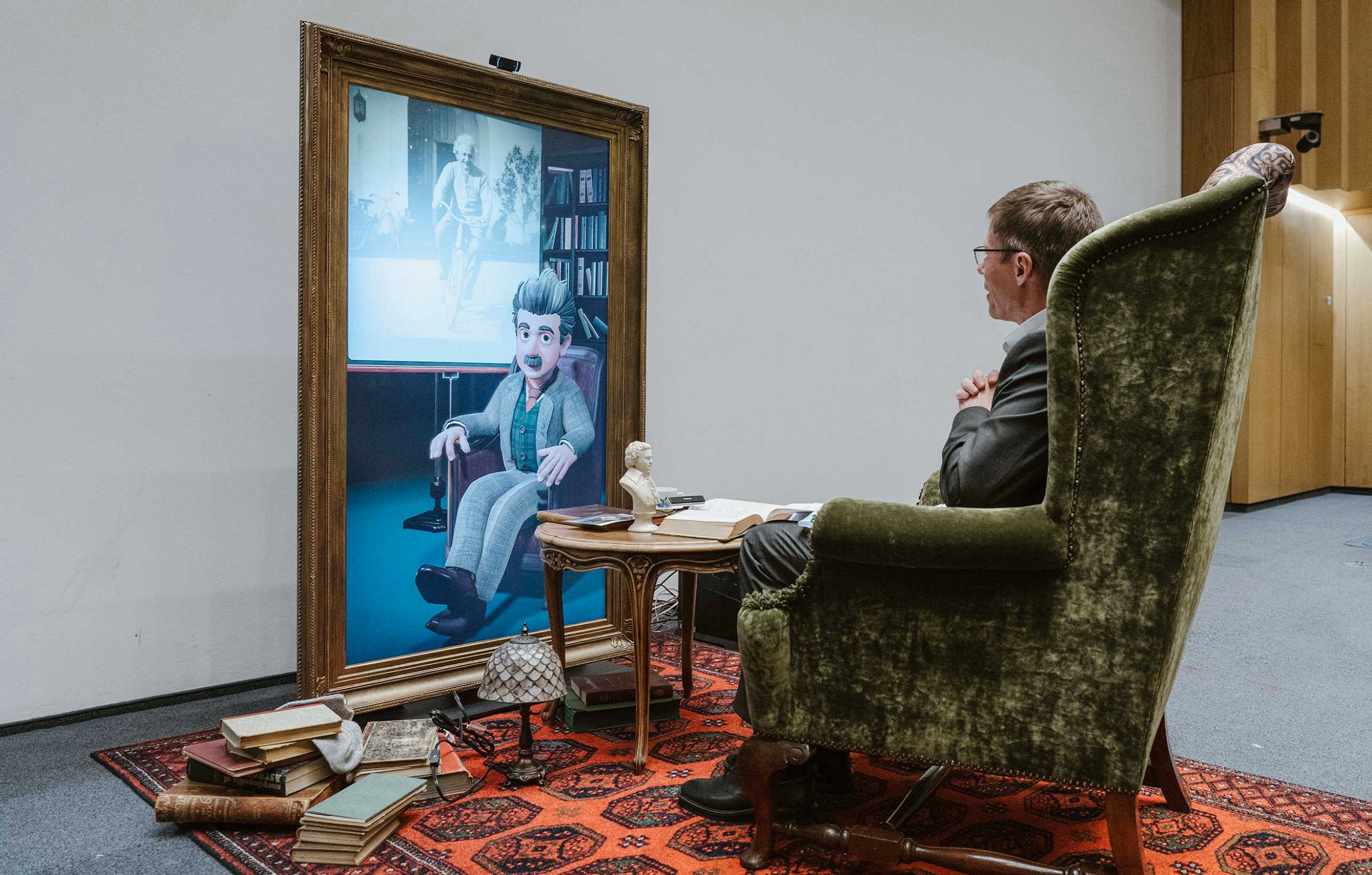“I viewed studying in Zurich as a personal challenge“
Riccardo Roveri has co-founded Animatico, an ETH spin-off that creates interactive avatars and was acquired by NVIDIA in 2022. In this interview, he talks about his love for computer graphics and how he experienced moving from Lugano to Zurich for his studies.

Riccardo Roveri, how did you come to co-found Animatico?
I met my main co-founders, Pascal Bérard and Christian Schüller, during our doctorate at the Computer Graphics Laboratory led by Professor Markus Gross. Professor Gross is also the Head of DisneyResearch|Studios in Zurich, so we worked with 3D animation a lot. We viewed interactive 3D avatars as a logical evolution of human-computer interaction: first, we only had keyboards, then touchscreens and then voice-controlled devices like Siri and Alexa. The next step is to add a face to the voice. We saw this as both a good business opportunity and very interesting technology to work on.
Wouldn’t talking to an actual person be preferable?
It was never our goal to replace people, but rather to bring a touch of humanity to devices that were already there. You can see countless interactive screens being installed in train stations, in restaurants, in stores. Avatars can help make these interactions more natural and intuitive.
Did you ever have trouble explaining avatars to other people?
We definitely did. We learned to always bring a prototype to business meetings, because sometimes we spent hours explaining the value of avatars. People have seen them in messaging apps, in games and in movies, but hardly anyone has talked to one yet. Letting people try it is the most effective way to convince them.
“Avatars are the logical next step in human-computer interaction.”Riccardo Roveri, co-founder of Animatico.
Where does your interest in 3D animation come from?
As a kid, I was drawn to anything that was 3D on a screen, be it animated movies or videogames. I really became fascinated with the technology when I watched the first Toy Story movie. I’m also a basketball fan, so I always got the newest NBA videogame for Christmas. Watching the quality of the graphics improve year by year was very impressive.
Was founding a start-up always a career goal for you?
I have been fascinated by start-ups for a long time. It’s amazing how a small team can disrupt entire industries and bring new technologies to market. I interned at a start-up during my Bachelor’s and that’s when I knew I wanted to found one or at least work in one. But I have enjoyed all the different experiences so far, from academia to a start-up and now working in a big company.
Did you also appreciate the business aspects of running a start-up or did you prefer the engineering part?
I enjoyed it, although it was a learning process. Animatico was the first start-up for all three of us and we had to switch our mindset from research to business. During the doctorate, your work is very focused and in-depth. In a start-up, you have to move faster and develop technology that may be less cutting-edge but much more robust. I really liked having the constant feedback from the market as to what we should improve or implement next.
What was it like running an ETH spin-off?
The connection to ETH helped us a lot. The spin-off label gave us credibility with investors and clients and we could collaborate with ETH, for example on the Digital Einstein project. I loved staying connected to ETH in this way even after my studies. In one way or another, ETH has been a big part of my life for fourteen years!

Why did you choose to study computer science at ETH Zurich?
It was clear early on that I would study computer science. Not only was I fascinated with animated movies and games, I also programmed my own small games for friends and family. ETH was an obvious choice because it’s one of leading universities in the field and also quite close to my home, Lugano. And it offered a Visual Computing track in the Master’s, which sealed the deal for me.
Coming from Ticino, was the language barrier hard for you to overcome?
Not at all. Most computer science subjects are very technical. Numbers and formulas are the same in any language, so I didn’t need perfect command of German to study them. I also saw leaving the comfort of Lugano as a bit of a personal challenge.
Wasn’t that intimidating?
A little. The first days at ETH were overwhelming. Sitting in the huge lecture halls with almost a hundred other people was an entirely different experience from high school. But the pace was so fast that there was no time to overthink. Within a few weeks, we were already too busy with assignments to worry about all of that.
How did you experience the remainder of your studies?
I was surprised to discover that the first years of the computer science Bachelor’s include so much mathematics and other basic subjects, and not all that much programming. We only got to work on big applied projects during the Master’s. But I quickly realised that all those basics were very necessary and useful.
Which lecture did you like most?
I liked all of the Master’s courses because a lot of them were focused on computer graphics and computer vision. I particularly enjoyed practical courses, where we could work on a project and see a result. The Game Programming Laboratory was probably the most memorable one. During the Bachelor’s, I liked the purely mathematical courses like analysis and algebra.
“Numbers and formulas are the same in any language, so the language barrier wasn’t much of an issue for me”Riccardo Roveri, co-founder of Animatico.
And what was your least-favourite lecture?
I really struggled with low-level programming in Assembly. This is the layer below the programming language where you directly communicate with the computer, almost down to the bytes. This didn’t resonate with me at all and I wasn’t very good at it.
What did you learn at ETH beyond the technical skills?
I learned to work in different teams, both with friends and with complete strangers. And I picked up time management skills, as we often had very busy semesters. The semester where I did the Game Programming Laboratory was particularly challenging, because working on your game is so much fun that you tend to neglect all your other courses. I had to prioritise and make sure I delivered good results across different projects and courses instead of a perfect result in just one course.
What advice would you give to new ETH students?
Don’t be discouraged if you don’t see a lot of actual coding in your first years. And don’t underestimate the importance of all the programming concepts and patterns you will be learning. They might seem like overkill when you’re first studying them, but you will be using them for your entire career in computer science – and they’re fundamental when working on big projects, whether in a start-up or in a big company.
And what would you recommend to students coming to ETH from Ticino?
Don’t let the language barrier scare you! We study Standard High German in school, but in Zurich, everyone speaks Swiss German. It’s a bit of a shock for the first few days, but you will get used to it. I would also recommend not sticking exclusively with other Ticinese students, but taking advantage of all the events and networking opportunities ETH offers to meet people from all over the world. These friendships are one of the best things I gained at ETH.